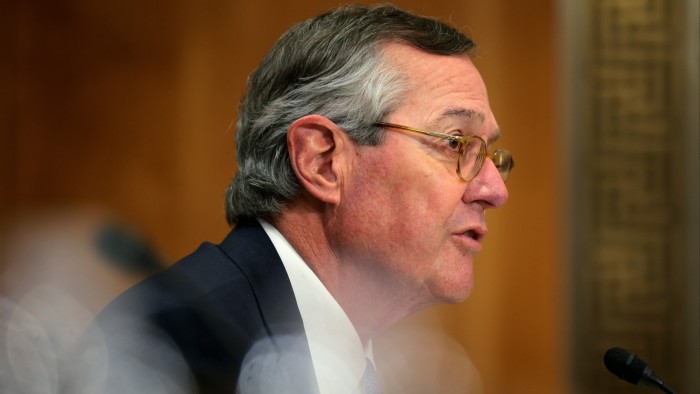Unlock the Editor’s Digest for free
Roula Khalaf, Editor of the FT, selects her favourite stories in this weekly newsletter.
American pharmaceutical companies will pull out of Britain unless the country pays more for its medicines, the US ambassador to the UK has warned.
In a speech in London, Warren Stephens said the amount paid by the NHS for drugs was one of the main areas of concern facing relations between the UK and the US.
“If there are not changes made and fast, pharma businesses will not only cancel future investments, they will shut down their facilities in the UK,” he told a lunch in London on Wednesday hosted by the BritishAmerican Business trade association. “This would be a major blow to a country that prides itself, rightly so, on its life sciences sector.”
The ambassador said he was urgently raising the issue because “decisions are being made that are irreversible”.
The government is said to be ready to increase the amount the NHS pays pharmaceutical firms for cost-effective drugs by up to 25 per cent as part of talks between the two countries. One senior person close to the talks said that there was a recognition that the National Institute for Health and Care Excellence (Nice), England’s drug approval body, did “not pay enough for treatments that prolong life”.
Stephens, who took up the role in May, said the UK should address its pricing structures for medicines after “multiple pharma companies have cancelled future investments here, and there is a growing list of drugs not being offered to UK citizens”.
In September AstraZeneca announced it was pausing a £200 million research and development investment in Cambridge. In the same month, Merck, the US pharmaceutical group known as MSD in Europe, also accused the UK of not being internationally competitive as it scrapped a £1 billion research centre.
In May, President Donald Trump used the UK to highlight the gulf in prescription prices between the US and Europe, saying one of his “seriously overweight” businessman friends had bought the “fat shot” drug for $88 in London compared with $1,300 in New York.
Stephens also highlighted the UK’s high energy costs and planning red tape as a burden for international business.
“Every business I meet, in every sector, complains to me that energy costs make the UK an expensive, and difficult, place to do business,” he said. “For example, the permitting process to get virtually anything done is a headwind to any company looking to expand.
“If there are not major reforms to UK energy policy, then the UK’s position as a premier global economy is vulnerable.”
The government has said reducing red tape and implementing planning reforms are central pillars of its mission to grow the economy, although businesses say that there is significant work still to be done.
It has also said that it will offer bigger discounts to energy intensive businesses to help reduce the burden, although this only applies to a narrow part of the economy.

